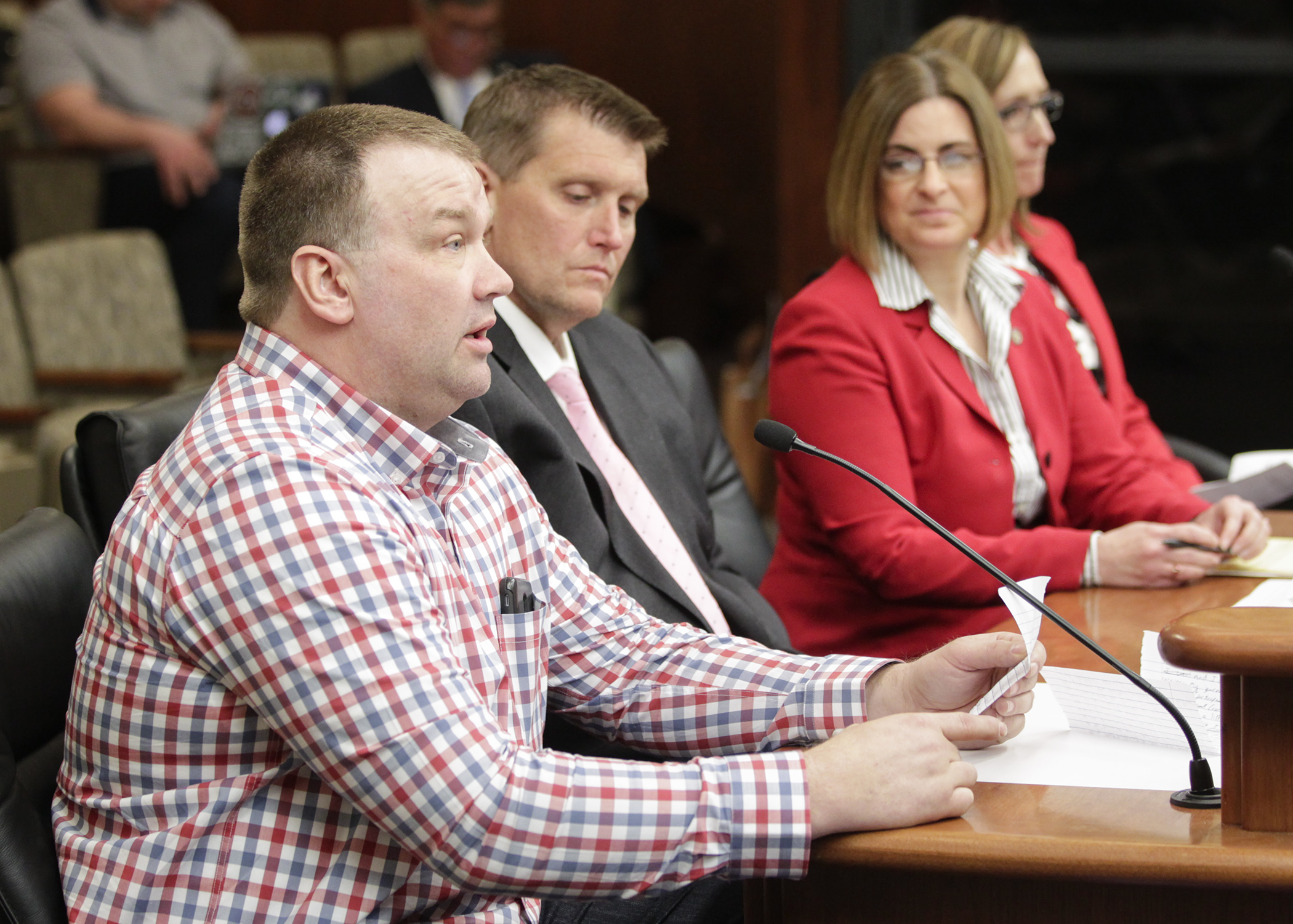More funding sought for drug courts to ‘change the trajectory of peoples’ lives’

Drug abuse, arrest, conviction, incarceration, re-offense and re-incarceration.
These are components of a vicious cycle that frequently trap chemically dependent people and fill up jails and prisons.
Courts that focus on sending offenders to treatment programs instead of jail “absolutely change lives,” said Rep. Marion O'Neill (R-Maple Lake).
O’Neill sponsors HF1349 that would appropriate $1.5 million in the 2020-21 biennium for treatment court start-up costs in Greater Minnesota. The same biennial amount would go toward paying the continuing operating costs for existing treatment courts in Ramsey and Hennepin counties.
The House Judiciary Finance and Civil Law Division laid the bill over, as amended, Wednesday for possible omnibus judiciary finance bill inclusion. The companion is SF1653, sponsored by Sen. Kari Dziedzic (DFL-Mpls), and is awaiting action by the Senate Judiciary and Public Safety Finance and Policy Committee.
There are 61 treatment courts around the state, with several counties in the metro area having more than one. There are 21 counties across the state without treatment courts, O’Neill said, but judges and court administrators in those counties have observed how successful they can be.
“This is one of the best things that we can possibly do to change the trajectory of peoples’ lives,” she said.
Jared Forner testified about the darkest time in his life, November 2016, when his drug addictions overwhelmed him. “I had already accepted that my disease would put me behind bars,” he said. “So I gave up.”
Forner was the first participant accepted into the Wright County treatment court. While attending treatment programs the court sent him to, he learned to be honest with himself and be accountable for his actions.
“The longer I was sober in this program the better person, the better father, and the better son I became,” he said.
Treatment court strategies include regular appearances before a judge, intensive supervision by a probation officer, frequent and random drug and alcohol testing, and immediate sanctions and incentives to reward program compliance.
“Praise was given when deserved, and discipline or sanctions were there when there were struggles,” Forner said. “My addiction is in remission right now due to the skills that I have learned.”
Several of the treatment courts in the state, including the Wright County court Forner appeared before, were created using a three-year, $350,000 federal grant.
That funding ends in September of this year, O’Neill said, adding that given the tremendous success of these courts, it makes good financial sense for the state to take over funding them.
Related Articles
Search Session Daily
Advanced Search OptionsPriority Dailies
Ways and Means Committee OKs proposed $512 million supplemental budget on party-line vote
By Mike Cook Meeting more needs or fiscal irresponsibility is one way to sum up the differences among the two parties on a supplemental spending package a year after a $72 billion state budg...
Meeting more needs or fiscal irresponsibility is one way to sum up the differences among the two parties on a supplemental spending package a year after a $72 billion state budg...
Minnesota’s projected budget surplus balloons to $3.7 billion, but fiscal pressure still looms
By Rob Hubbard Just as Minnesota has experienced a warmer winter than usual, so has the state’s budget outlook warmed over the past few months.
On Thursday, Minnesota Management and Budget...
Just as Minnesota has experienced a warmer winter than usual, so has the state’s budget outlook warmed over the past few months.
On Thursday, Minnesota Management and Budget...